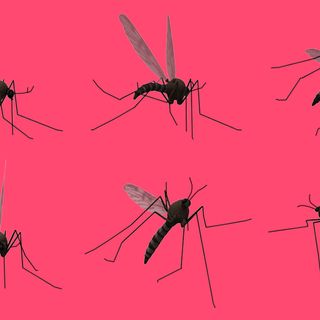
Global Study Finds Most People’s Ideal Life Is a Happy Medium
Across cultures, perfection is overrated.

We all have hopes, dream — ideals. However, according to new research published in Psychological Science, our vision of our perfect selves and perfect lives are surprisingly humble.
“Our research shows that people’s sense of perfection is surprisingly modest,” says first author, psychological scientist Matthew J. Hornsey of the University of Queensland. “People wanted to have positive qualities, such as health and happiness, but not to the exclusion of other darker experiences — they wanted about 75% of a good thing.”
The research involved two studies, the second, a larger-scale replica of the first, lending credence to findings. In the first study, researchers analyzed data of more than 2,000 participants from India, Japan, China, Hong Kong, Russia, Australia, Chile, Peru, and the United States. The participants were classified into two groups: holistic cultures and nonholistic cultures. Holistic cultures are highly influenced by holistic religions and philosophies like Hinduism, Buddhism and Taoism, and tend to assign meaning and establish norms via context; this group included India, China, Hong Kong and Japan. Non-holistic cultures, which include Australia, Russia, Chile, Peru and the United States, tend to assign meaning and establish norms through objective, less contextual logic.
Participants in each country were given a questionnaire in their native language. Participants reported their ideal level of intelligence, ideal life span under normal circumstances and if they had access to a hypothetical, magic eternal youth pill. They were asked to rate their ideal percentage, over the course of a lifetime, of good health, individual freedom, happiness, pleasure and self-esteem. They also rated ideal levels of social and societal characteristics, like morality, equal opportunity, technological advancement.
On an average, participants rated the characteristics of their ideal lives at 70 to 80%, with the exception of some characteristics; maximum good health was more integral to an ideal life for most participants than maximum happiness. Participants also chose moderate levels of intelligence (an average of 130, which means smart, but not genius) and longevity for their ideal selves. On an average, participants ideally wanted to live until 90 years of age, which is only about 18 years longer than the world’s current average life expectancy. Even when given the option of a hypothetical magic pill for eternal youth, people’s ideal life span rose by only a few decades, to an average of 120 years.
The researchers also discovered that participants from holistic cultures consistently wanted less of their ideal lives than non-holistic cultures.
“Interestingly, the ratings of perfection were more modest in countries that had traditions of Buddhism and Confucianism,” says Hornsey. “This makes sense — these Eastern philosophies and religions tend to place more emphasis on the notion that seemingly contradictory forces coexist in a complementary, interrelated state, such that one cannot exist without the other.”
According to the first study, Indians’ average ideal IQ was 114, and the average ideal life span was 75 years. With the option of an eternal youth magic pill, the average ideal life span went up to 100. The second, larger-scale study varied only slightly. In it, Indians’ ideal IQ was 120 and ideal life span was 80. Perhaps surprisingly, the option to magically extend longevity was not tempting; the average ideal life span for Indians given the option of a magic pill was still 80 years. This is in stark contrast to non-holistic countries like Spain; Spanish participants’ average ideal IQ was 130 and life span was 90; with the possibility of eternal youth, Spainiards’ ideal average life span shot up to 500.
Researchers conducted a third, even larger-scale replica of the study, including more than 6,000 participants from 27 countries and found results that were similar to the original study. Those from more cultures that are collectivist (prioritizing the needs of the whole group over the needs of the individual) but not holisitic showed ideals similar to non-holistic cultures.
People are a lot more complex that we think, concludes Hornsey. Perfect is often mistaken for having it all, but there may be a reason it’s called a happy (happiest?) medium.
Angelina Shah is a staff writer with The Swaddle. In her previous life she was a copywriter in advertising. She has a penchant for reading, singing, travelling and being obsessed with superheroes.
Related


New Study Weighs Cancer Risk, Cardio Benefit of Lifelong Alcohol Consumption
